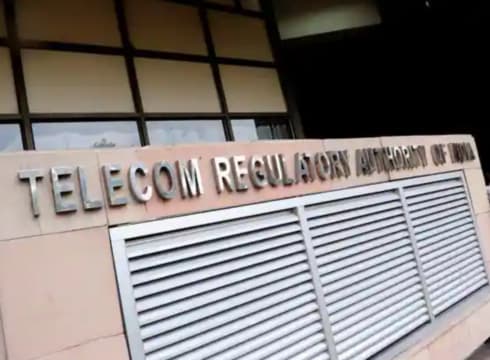TRAI is looking to address the issue of unsolicited commercial communication (UCC) via the said joint committee
The telecom regulator is exploring ways to tackle the problem by asking entities such as banks to whitelist their websites or links
TRAI might come out with a consultation paper if any changes to the existing regulatory framework are required
Inc42 Daily Brief
Stay Ahead With Daily News & Analysis on India’s Tech & Startup Economy
The Telecom Regulatory Authority of India (TRAI) has included officials from the Reserve Bank of India (RBI) and the Securities and Exchange Board of India (SEBI) in a joint committee to curb the threat of phishing and cyber fraud.
In an ET report, TRAI secretary V Raghunandan was cited as saying that the telecom regulator is looking to address the issue of unsolicited commercial communication (UCC) via the said joint committee.
The panel has identified certain areas to find ways to prevent financial fraud primarily aimed at luring mobile subscribers with a phishing link. Reportedly, TRAI chairman PD Vaghela also met with the financial regulators to discuss the same.
TRAI is exploring ways to tackle the problem by asking entities such as banks and other financial institutions to whitelist their websites or links.
Simply put, a whitelist labels some identified entities such as a bank as trustworthy. Whitelisting is a standard part of a cybersecurity strategy and approves a list of websites, email addresses, IP addresses and applications while denying all others.
Phishing can be prevented by scrubbing a link shared by an attacker with the whitelist. A URL being used for phishing would not make it to the user.
To enforce the whitelist, TRAI is using blockchain technology, specifically distributed ledger technology (DLT). DLT is a digital system for recording the transaction of assets; the system stores the transaction details in multiple places simultaneously. Apart from blockchain, the telecom regulator is also using AI to monitor unregistered telemarketers.
TRAI might come out with a consultation paper if any changes to the existing regulatory framework are required to implement the changes needed to shore up cybersecurity.
It might take six months to 12 months to put the full mechanism in place.
Incidentally, India is one of the global hotspots for cyber fraud. A Truecaller report put India fourth in terms of the number of spam calls received worldwide. According to the report, sales-related calls made up a vast majority (93.5%) of all incoming spam calls in the country. TRAI’s move comes in light of this issue.
According to a 2021 report from the United States Federal Bureau of Investigation (FBI), India was home to the fourth-largest number of cybercrime victims in the world, behind only the US, the UK and Canada.
Earlier this year, a Google report highlighted the severity of the situation. According to the tech major’s report, India saw 18 Mn cyberattacks and 2 Lakh threats per day in the first quarter of 2022.
{{#name}}{{name}}{{/name}}{{^name}}-{{/name}}
{{#description}}{{description}}...{{/description}}{{^description}}-{{/description}}
Note: We at Inc42 take our ethics very seriously. More information about it can be found here.


